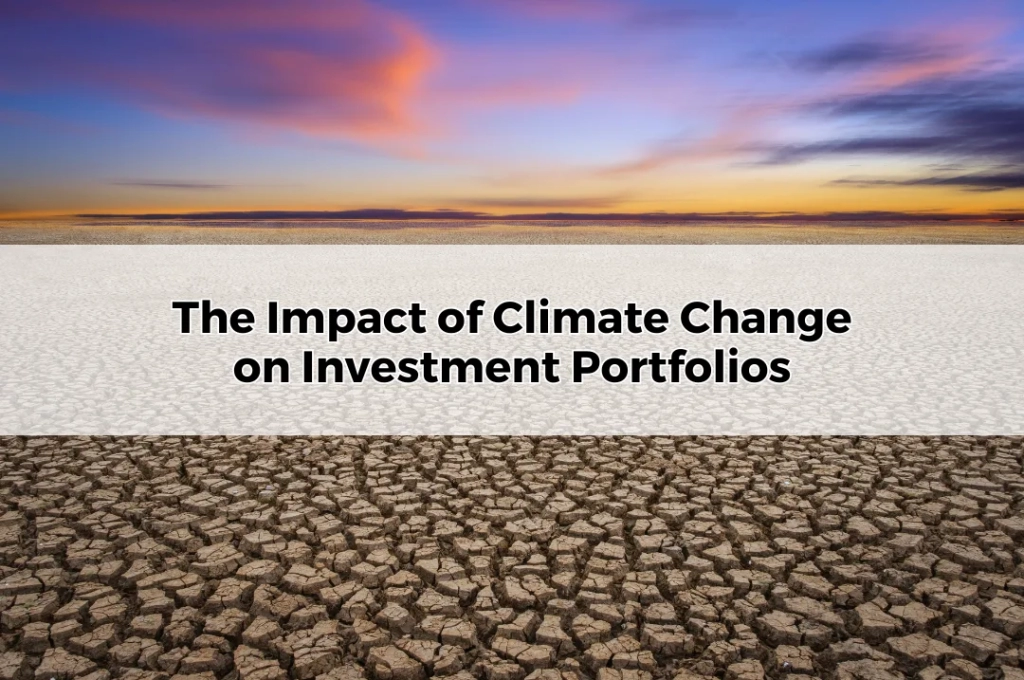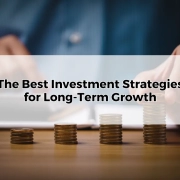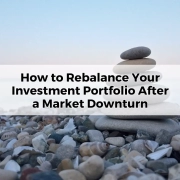The Impact of Climate Change on Investment Portfolios
Table of Contents
ToggleClimate change is no longer a distant environmental issue; it is a powerful force shaping global financial markets. Severe weather events, rising global temperatures, and shifting regulations are influencing economic landscapes worldwide. Investors must recognise how these changes impact risk, return, and opportunity across diverse investment portfolios. This understanding is crucial to aligning investments with future resilience and growth.
Understanding Climate Risk in Investments
Physical Risks
Physical risks arise from the direct consequences of climate change, such as cyclones, floods, wildfires, and droughts. These events disrupt industries, destroy infrastructure, and destabilise supply chains, eroding asset values and affecting profitability. Industries with significant physical infrastructure, such as agriculture, manufacturing, and real estate, are particularly vulnerable to these risks.
Transition Risks
Transition risks stem from the global shift towards a low-carbon economy. Regulatory changes, carbon pricing mechanisms, and evolving consumer preferences are driving industries to adapt rapidly. For sectors like energy and transportation that rely heavily on fossil fuels, the transition poses significant financial challenges, but it also creates opportunities for innovation and investment in clean energy solutions.
Regulatory Developments and Investor Implications
Governments worldwide are enacting stricter climate policies to meet global climate targets. In Australia, regulatory bodies such as the Clean Energy Regulator are implementing initiatives to encourage emissions reduction. International agreements like the Paris Agreement are influencing corporate behaviour, requiring companies to disclose climate-related risks and emissions. For investors, staying informed about these developments is essential for aligning portfolios with evolving regulatory landscapes.
Opportunities in Renewable Energy Investments
Growth of Green Energy Markets
The renewable energy sector, encompassing solar, wind, and hydropower, is growing at an unprecedented rate. Advancements in technology and decreasing costs have made renewable energy a viable and attractive investment. These markets are projected to expand further as governments incentivise green energy projects, presenting opportunities for investors seeking long-term returns.
ESG Investment Trends
Environmental, Social, and Governance (ESG) criteria are becoming mainstream in investment decision-making. Companies that prioritise sustainability and ethical governance are increasingly appealing to investors. ESG-aligned portfolios often outperform traditional investments, reflecting the growing demand for responsible and climate-conscious financial strategies.
Diversification Strategies to Mitigate Climate Risk
Diversification remains a cornerstone of effective financial planning. Allocating investments across sectors and regions less exposed to climate risks reduces vulnerability to market volatility. For instance, investing in technology, healthcare, or renewable energy can offset potential losses in carbon-intensive industries, creating a balanced and resilient portfolio.
The Role of Data in Climate-Aware Investing
Data-driven approaches are transforming how investors assess and manage climate risks. Tools such as scenario analysis, climate risk modelling, and stress testing provide insights into potential vulnerabilities in portfolios. By leveraging these tools, investors can make informed decisions and adjust strategies proactively to address future challenges.
Sectors Most Impacted by Climate Change
Fossil Fuel Industry
The fossil fuel industry faces mounting challenges as demand declines and regulatory pressures increase. Stranded assets, rising operational costs, and declining profitability are compelling investors to re-evaluate their exposure to this sector.
Agriculture and Food Production
Agriculture is highly sensitive to climate variability. Changes in temperature, rainfall patterns, and extreme weather events directly impact crop yields, livestock health, and food supply chains. This volatility makes agricultural investments increasingly complex and necessitates innovative risk management strategies.
Insurance Sector
The insurance industry is experiencing heightened claims from natural disasters exacerbated by climate change. Insurers must revise risk models and pricing structures to remain sustainable. While this poses challenges, it also presents opportunities for growth in climate-resilient insurance products.
Climate-Resilient Asset Classes
Infrastructure Investments
Green infrastructure, including energy-efficient buildings, sustainable transport networks, and water management systems, offers stable returns while supporting environmental sustainability. These assets align with global efforts to mitigate climate change and are increasingly popular among investors.
Sustainable Bonds
Sustainable bonds, such as green bonds and sustainability-linked bonds, finance projects with environmental and social benefits. These instruments align with the goals of responsible investing, providing opportunities for investors to support climate-positive initiatives while earning competitive returns.
The Importance of Long-Term Financial Planning
Long-term financial planning is essential in navigating the uncertainties of climate change. By integrating climate considerations into investment strategies, individuals and organisations can mitigate risks, capitalise on emerging opportunities, and ensure financial stability. Forward-looking planning also helps investors align their portfolios with personal and societal sustainability goals.
How a Toowoomba Financial Adviser Can Assist
Engaging a local financial adviser with expertise in sustainable investing provides tailored guidance for navigating climate-related challenges. Rob Laurie, a Master Financial Planning and SMSF Specialist Advisor at Wealth Factory in Toowoomba, Queensland, offers specialised advice to optimise portfolios and align them with climate-conscious objectives. By incorporating local insights and global trends, a Toowoomba Financial Adviser ensures strategies are both relevant and effective.
Leveraging Technology for Online Financial Advice
The rise of online financial platforms has made expert advice more accessible than ever. Online Financial Advisers provide flexibility for clients to engage with specialists remotely, ensuring seamless collaboration. For those seeking Retirement Financial Advice or comprehensive investment planning, digital tools enable efficient communication and personalised solutions.
Conclusion
Climate change is reshaping investment landscapes, presenting both challenges and opportunities. By understanding its multifaceted impact and integrating climate considerations into financial planning, investors can achieve sustainable growth while contributing to global climate solutions. Strategic guidance from experts, such as those at Wealth Factory in Toowoomba, empowers investors to navigate this evolving landscape and secure their financial future.









